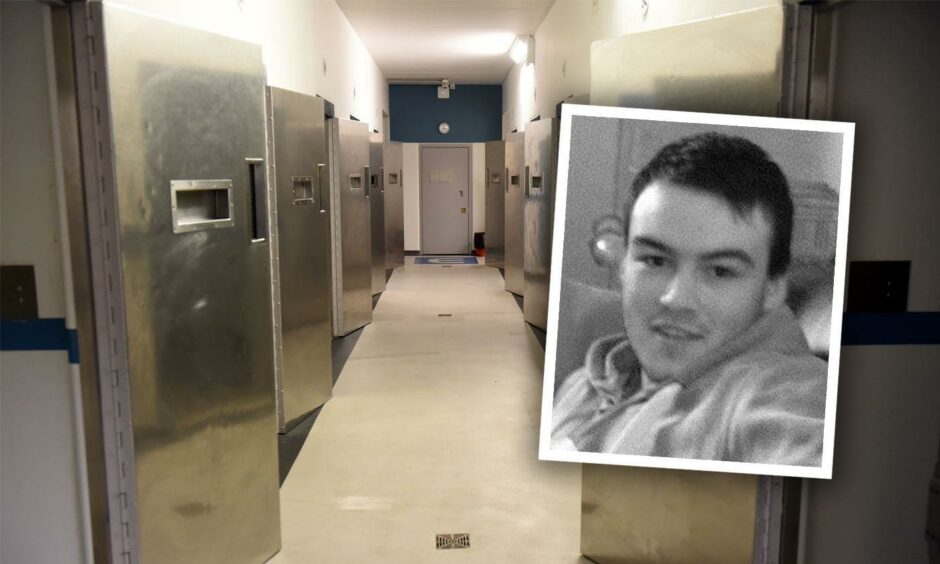An Aberdeen man who died in police custody seven years ago may have survived if he was arrested today – following operational changes made since his death, a court has heard.
A Fatal Accident Inquiry (FAI) into the death of Warren Fenty heard evidence from a police witness, who was a sergeant at the time of the 20-year-old’s death in June 2014.
Mr Fenty died hours after being released from Aberdeen Royal Infirmary where medical staff treated him for a drug overdose.
The patient was given an intravenous drug (Naloxone) to counteract the effects of the overdose, before discharging himself and immediately being arrested by police investigating potential drugs offences.
Inspector Mark Fleming was promoted after the tragic incident, and carried out a review of the events leading up to the detainee’s passing.
The inquiry, being held at Aberdeen Sheriff Court, scrutinised CCTV footage recording Fenty’s movements as he left the hospital and entered the back of a police van.
Watching the discharged patient in the company of police officers, fiscal depute Muhammad Sadiq asked: “Can you tell the court about the demeanour of Mr Fenty?”
Inspector Fleming responded: “He appears fit and well, appears lucid in conversation and he’s cooperative”.
Video footage of the ambulance bay showed police officers with Mr Fenty moments before they entered the van.
Viewing the video surveillance covering the inside of the vehicle’s “cage” – the rear section used for transporting arrested persons – the inspector commented: “Mr Fenty initially sat on the bench and then he’s now on the floor.
“He’s used a blanket as a pillow and he’s trying to sleep.”
Inspector Fleming said there was a “communication breakdown” between NHS Grampian and Police Scotland during the handover of Fenty.
He told the court that there was a “significant gap” in information shared between those who came into contact with Fenty.
‘Police Scotland were blind’
He told sheriff Morag McLaughlin: “From the point that Fenty was discharged from hospital and taken into police custody, Police Scotland were blind to the detail of any treatment provided or potential risk associated with his consumption of methadone.”
Kittybrewster custody staff identified Fenty as being a “high risk” prisoner placed on suicide watch, which required visits to his cell every 30 minutes.
He explained how the prisoner was left alone for one hour and 45 minutes instead of being checked on three times during that period as required.
‘Too much to do’
The court heard more from the inspector who added: “Had the rousing visits been completed to the required standard, it is likely any deterioration in
Warren Fenty’s health would have been identified”.
The court heard that Police Scotland has since doubled the number of personnel staffing custody teams on duty at Kittybrewster Police Station.
The custody suite is also now supported by nurses working onsite round the clock.
And national guidance is available which details the necessary procedures when dealing with prisoners who have been administered Naloxone prior to custody.
Lessons learned and changes made
Ending his evidence to the fiscal depute, Inspector Fleming spoke about the changes made to policies and procedures.
He said: “All custody staff now collectively receive a detailed briefing at the start of each shift.
“It is my opinion, taking cognisance of the identified learning and changes made at Kittybrewster custody centre following this tragic event, had Warren Fenty been presented as an arrested person today, the details of the treatment provided in hospital would be known and captured by custody staff when he was booked into custody, he would have been referred to the duty nurse, any deterioration in his health would have subsequently been identified by staff and escalated to the nurse.
“In all likelihood he would have been transferred back to hospital resulting in a different outcome.”
The inquiry continues.














